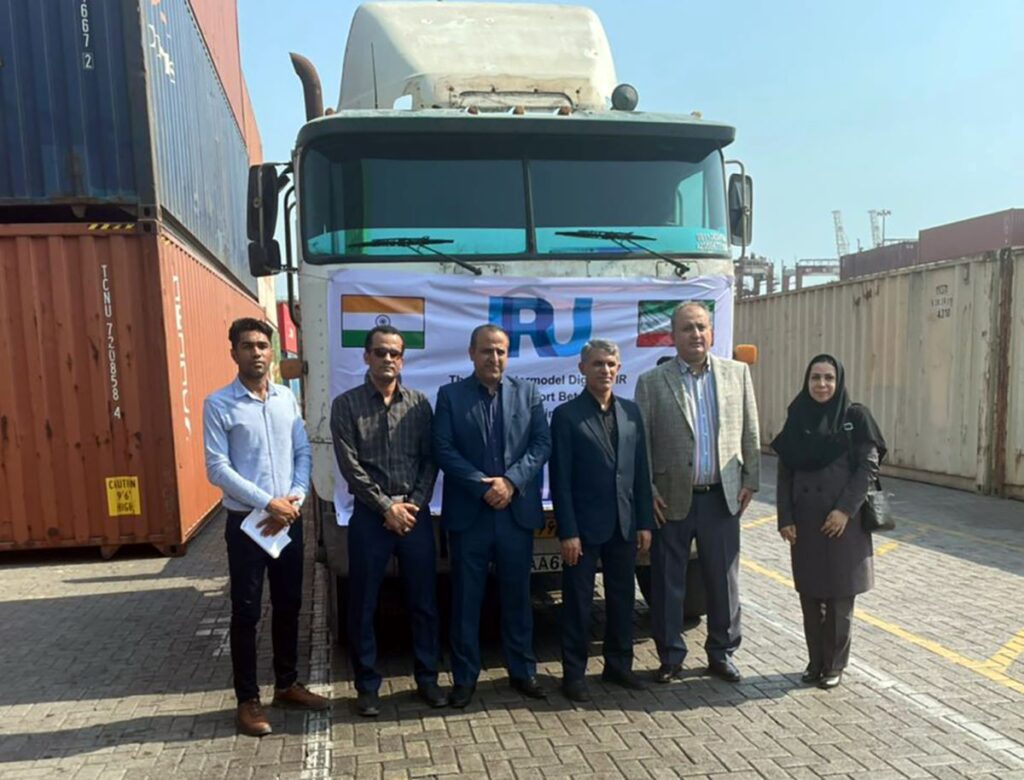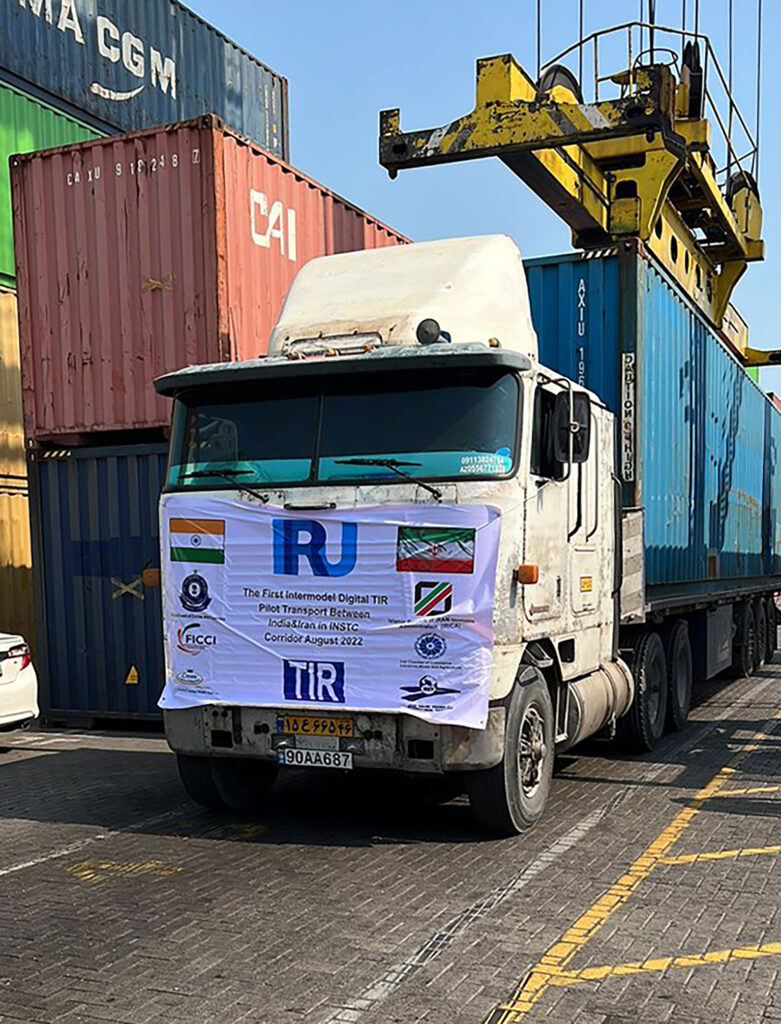The project was completed with the support of Indian and Iranian customs authorities, as well as the national associations FICCI and ICCIMA.
IRU Secretary General Umberto de Pretto said, “The successful pilot project between India and Iran is excellent news for intermodal TIR transport. It will mean huge time savings for transport operators.”

“Fully digital intermodal TIR transports can also significantly reduce port congestion by rapidly releasing containers, an important issue right now with the global shortage of containers,” added Umberto de Pretto.
“The result of the project was great,” said Fazal Hussain, CEO of Crown Logistics, who participated in the project. “We presented the declaration at the Iranian Port before the container had even arrived, while the truck was immediately released by customs, without further inspections. Everything was done electronically. We saved three days at the port, which is key for us as a door-to-door logistics provider.”

The pilot project demonstrated the efficiency of a fully intermodal TIR transport. An electronic guarantee was issued instead of a TIR carnet, and all messages, such as the pre-declaration, were exchanged electronically in advance with relevant public and private actors, including customs authorities, which expedited the customs and port procedures.
These advantages are prompting transport operators to begin using TIR instead of fragmented national transit systems. Other countries are being encouraged to participate in the next stages of this pilot project.
India and Iran successfully concluded the first pilot of a fully digital intermodal TIR transport. The container was released less than a day after arriving in Iran’s Bandar Abbas port, which would have otherwise taken up to five days. The transport took place along the International North-South Transport Corridor.